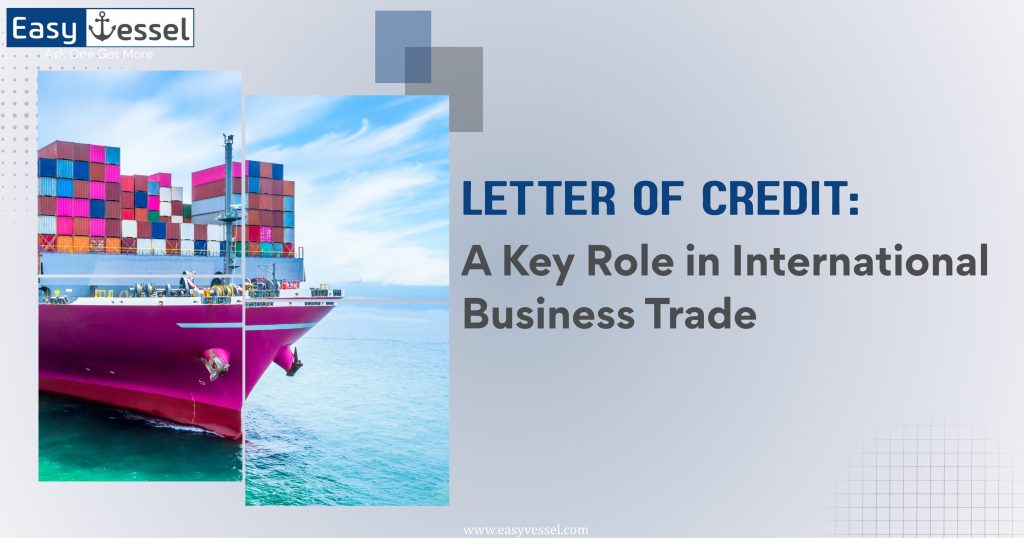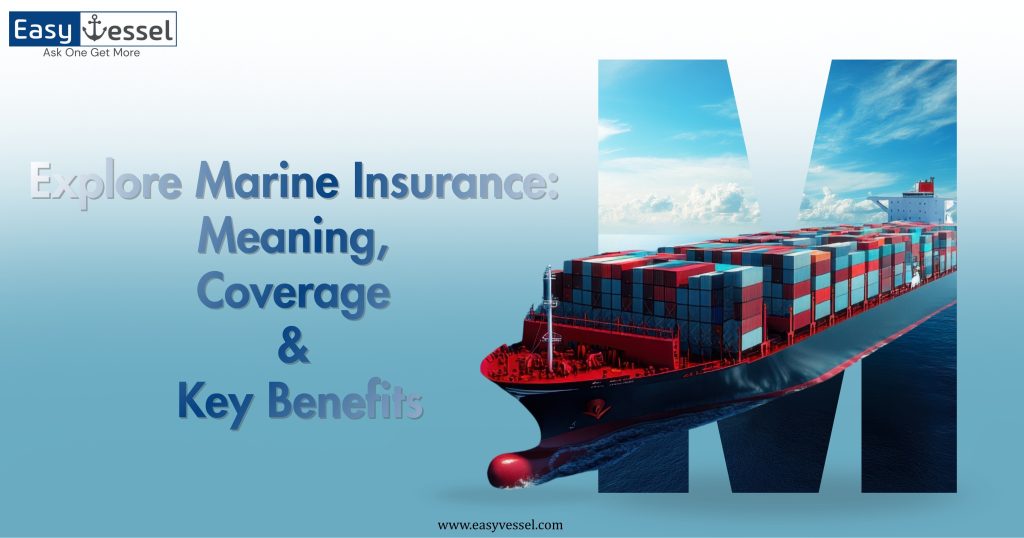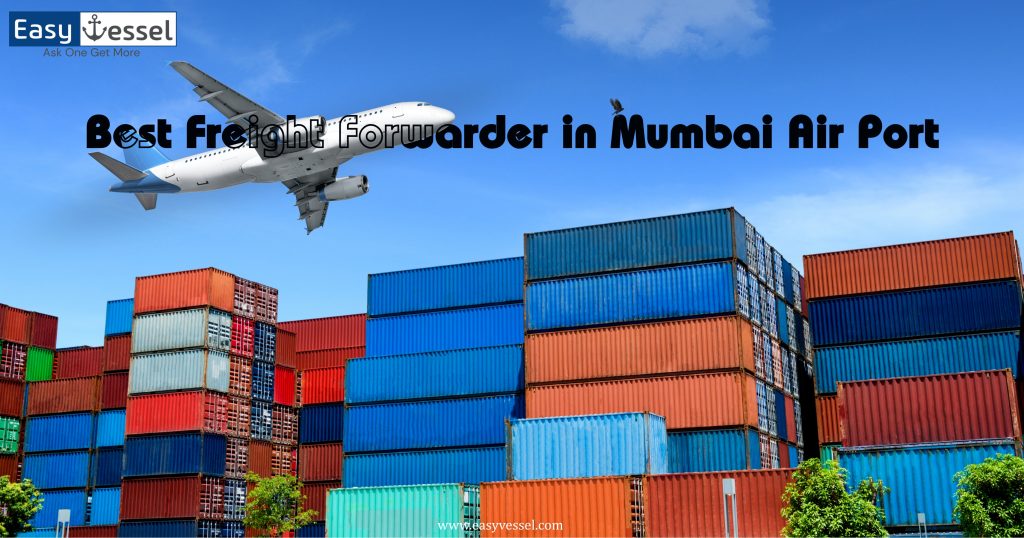In today’s fast-paced world of international shipping, ensuring the safety and security of your cargo is critical. With goods traveling across countries and continents, the risk of damage, loss, or theft is always present. Cargo insurance is essential in this situation. It acts as a safety net, helping businesses manage risks and avoid significant financial losses during transportation. In this blog, we’ll explore the importance of cargo insurance, its benefits, how it works, and why it’s essential for businesses involved in global logistics.
What is Cargo Insurance?
Insurance policies that protect commodities from risks while in transit are known as cargo insurance. Whether your shipment moves by air, sea, or land, cargo insurance protects you financially in unexpected events. This type of insurance is particularly relevant for international shipping, where goods pass through various hands and geographical boundaries.
There are different types of cargo insurance, including:
- Land Cargo Insurance covers goods transported overland, usually by trucks or trains. It offers defense against incidents, theft, and damage in inland transit and is frequently utilized for domestic shipments. It is essential for businesses relying on ground transport within a country or region.
- Marine Cargo Insurance: Despite the name, this insurance covers goods transported by sea and air. It is widely used for international shipping and offers protection against risks such as rough weather, sinking, piracy, or cargo handling damage during loading and unloading at ports and airports. This insurance is critical for global trade, where goods travel long distances across various terrains.
Within these, policies can be further classified as:
- All-risk coverage: This is the most comprehensive type of cargo insurance, covering a wide range of unforeseen events unless specifically excluded in the policy. It provides peace of mind to shippers by protecting against damages from handling, theft, weather events, and accidents.
- Named perils policy: This type of insurance only covers the particular risks or occurrences stated explicitly in the contract instead of all-risk coverage. These could include fire, collision, derailment, theft, or natural disasters. While typically more affordable, it provides narrower protection and requires careful evaluation of potential risks.
The value of the shipment, the route, the form of transportation, and the shipper’s risk tolerance all play a role in selecting the best cargo insurance.
Why Cargo Insurance is Essential in International Shipping
- Mitigates Financial Loss Shipping goods internationally comes with various risks, such as natural disasters, accidents, or human error. You may suffer significant financial damages if your shipment is lost or destroyed without insurance. Cargo insurance guarantees business continuity and helps pay for these losses.
- Protects Against Unforeseen Events Even the most reliable carriers cannot control unpredictable events like storms at sea, theft, or port strikes. Cargo insurance offers comfort by paying for losses caused by unanticipated events.
- Enhances Credibility and Trust Having an appropriate cargo insurance policy might improve the reputation of your business. Customers and partners are likely to trust companies that take proactive steps to secure their goods during transit.
- Required in Some Contracts: International contracts require the shipper to provide cargo insurance. Without it, there may be disagreements or infractions of contracts.
Don’t miss to check: Different Types of International Shipping: A Guide to Choosing the Right One for Your Business.
Common Risks Covered by Cargo Insurance
- Theft and pilferage
- Loss due to accidents (shipwreck, derailment, plane crash)
- Damage from rough handling or poor packaging
- Natural disasters (floods, hurricanes, earthquakes)
- Fire and explosion
- Port or terminal mishandling
How Cargo Insurance Works
When you purchase cargo insurance, you choose a coverage plan that suits your shipping needs. Here’s a simple step-by-step overview:
- Assess Your Needs: Determine the value of your shipment and the type of transit (air, sea, land).
- Select Coverage: You can choose between named perils or all-risk coverage; if necessary, add more clauses.
- Pay the Premium: Pay the premium by the destination, mode of transportation, and the value of the products.
- File a Claim: In case of loss or damage, provide documentation (e.g., bill of lading, insurance certificate, photographs, etc.).
- Receive Compensation: The insurer will compensate for the covered loss upon approval.
Tips for Choosing the Right Cargo Insurance
- Understand Your Coverage Not all policies are equal. Read the fine print to find out what is and is omitted. For example, most policies do not cover delays, spoilage of perishable items, or losses due to improper packaging.
- Work with Reputable Insurers. Choose an insurer with experience in international shipping and logistics. They should offer quick claims processing and responsive support.
- Get Insurance for Every Shipment Some businesses only insure high-value shipments. But smaller shipments also carry risk. Regularly ensuring all your cargo adds consistent protection.
- Connect with Freight Forwarders Many freight forwarders provide services related to cargo insurance. This makes it easier to manage logistics and insurance under one roof.
Case Study: The Cost of Being Uninsured
A mid-sized electronics importer from the U.S. was shipping $200,000 worth of goods from Asia. A container went overboard because of rough seas while en route. The importer faced the entire cost because they chose not to purchase cargo insurance. Had they insured the shipment, they would have recovered most, if not all, of their losses.
Benefits of Cargo Insurance in Global Logistics
- Financial Stability: Shields your business from unexpected disruptions. With cargo insurance, companies can recover the value of lost or damaged goods, avoiding significant financial strain. It is a safety net, especially in high-value or large-volume international shipping.
- Better Planning: Helps in better risk assessment and planning. Knowing your shipments are insured allows logistics managers to forecast more confidently and allocate resources effectively. It also enables businesses to mitigate potential losses in their supply chain strategy.
- Customer Satisfaction: Ensures timely resolution of issues related to damaged or lost goods. Having insurance results in faster claims processing, which increases consumer trust. Customers who are happy with your services are more likely to use them again and refer you to others.
- Global Coverage: Most policies cover goods across countries, making it ideal for international business. This is especially crucial when dealing with multiple transit points and cross-border logistics. Comprehensive coverage helps reduce concerns over jurisdiction and liability in global trade.
Conclusion
In an era where commodities travel over long distances and frequently through unpredictably changing conditions, cargo insurance is not an option—it is necessary. It provides a financial safety net that protects businesses from potential losses, making it a key component of any international shipping strategy. As global trade expands, innovative companies must prioritize cargo insurance to ensure their supply chains remain resilient and secure.
Whether you’re a small business shipping occasionally or a large enterprise with complex logistics, investing in the right cargo insurance can make all the difference. Don’t leave your shipments to chance—secure them with cargo insurance and ship confidently.
Reference:
Cargo Insurance by Wikipedia[1].
Frequently Asked Questions
No, but it is highly recommended. Some buyers or sellers may require it as part of their contract.
That is dependent upon the Incoterms that are utilized in the shipping contract. Sometimes, it’s the buyer, other times, the seller.
Yes, single-shipment policies are available. You can also opt for annual policies if you ship frequently.
The type of coverage, destination, and cargo value affect the cost. It usually ranges from 0.1% to 2% of the shipment value.
Cargo insurance is essential in logistics because it protects businesses from financial losses due to damaged, lost, or stolen goods during international shipping. Transporting cargo across borders involves various risks, including accidents, weather events, theft, or mishandling.
There are generally three main types of cargo insurance: All Risk, Named Perils, and General Average. These types can be customized depending on the shipment and trade terms. Among the risks Named Perils covers are collision, theft, and fire. The general average is a shared loss theory that states that if some cargo is purposefully sacrificed to rescue the vessel, all stakeholders will share the losses.



